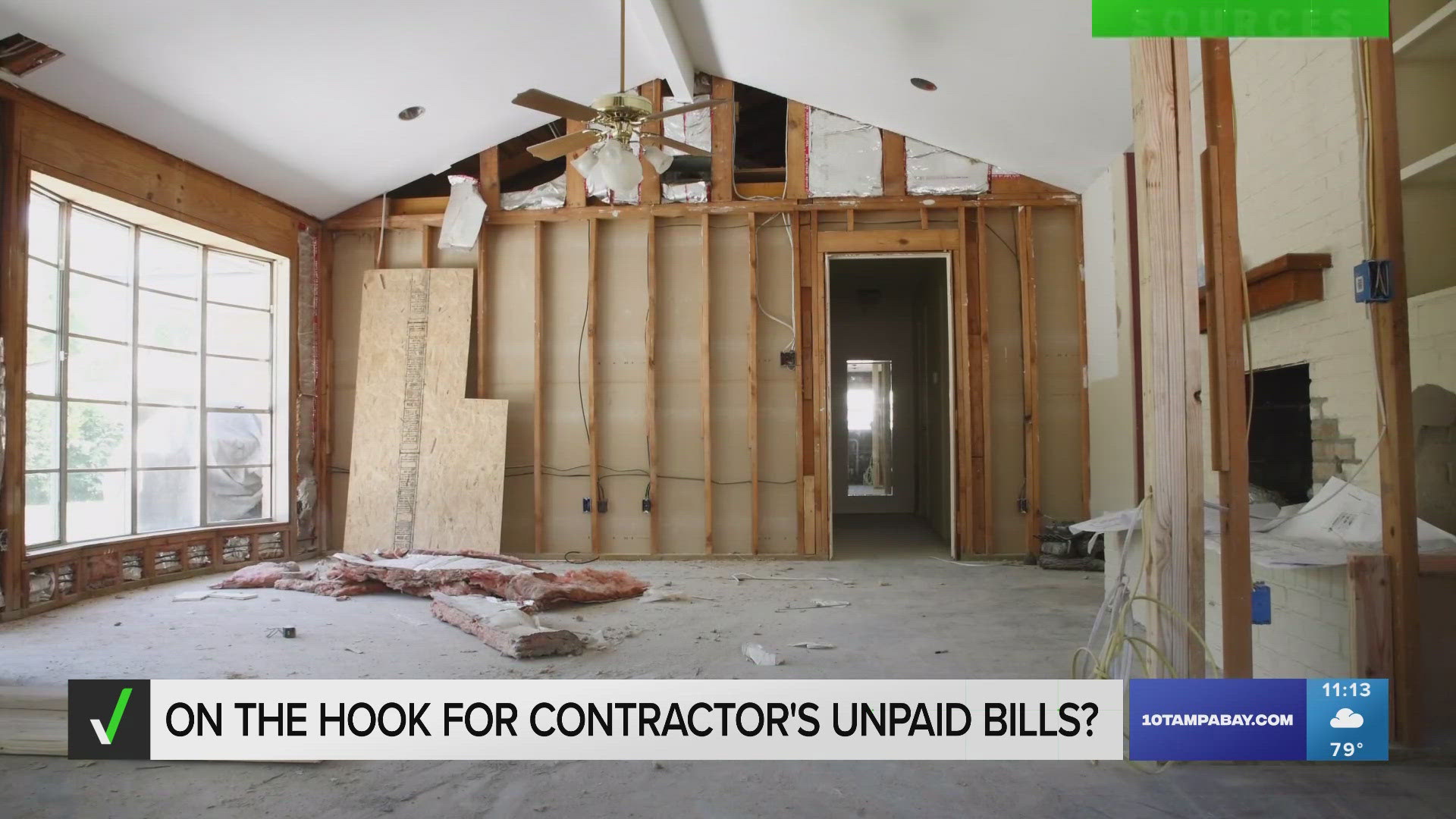ST. PETERSBURG, Fla. — Your home is likely your biggest investment, so you want to protect it.
But before you hire someone to do repairs or renovations, could state law put your home at risk for your contractor’s actions?
Brenda in Land O’ Lakes emailed VERIFY after hearing that a subcontractor or supplier could turn around and place a lien on her home if they don’t get paid by the general contractor. She asked if it’s true.
THE QUESTION
Can homeowners be held liable for a contractor’s unpaid bills under Florida law?
THE SOURCES
- Florida statute
- Jason Lambert, construction law attorney with Hill Ward Henderson
- Jason Ohman, Pinellas County consumer protection
- Florida Department of Business and Professional Regulations
THE ANSWER
Yes, homeowners can be held liable for a contractor’s unpaid bills under Florida’s construction lien law.
WHAT WE FOUND
Florida has had a construction lien law on the books for decades.
According to state statute, “those who work on your property or provide materials and services and are not paid in full have a right to enforce their claim for payment against your property.”
This means that if a lien is filed against your property, your property could be sold against your will to pay for labor, materials, or other services that your contractor may have failed to pay, the Florida Department of Business and Professional Regulations warns.
Tampa construction attorney Jason Lambert said there are several steps you can take to protect yourself – starting with asking for a payment affidavit when you make any payments to a contractor.
“Whether it's for a progress payment or for a final payment, that affidavit is going to spell out anybody who the contractor has hired as a subcontractor or material supplier [and] who they still owe money,” Lambert said. “That will give a property owner the information they need to make sure that they are protecting themselves as best they can to prevent liens from coming up.”
Jason Ohman with Pinellas County’s Office of Consumer Protection also recommends requesting lien waivers from a contractor and any subcontractors. This is a written statement that removes your property from the threat of lien, according to the Florida Department of Business and Professional Regulations.
However, it’s a step that must be taken with each payment made, Ohman said.
Given the complexities of the law, Ohman and Lambert both recommend consulting legal advice if you find yourself in a situation where you are facing the threat of a lien on your property.
"I think it does surprise people – they think they've done everything they should, they've made the payments required,” Ohman said. “But ultimately as the homeowner and the way the laws are currently written, you could be on the hook paying for the same thing twice."

